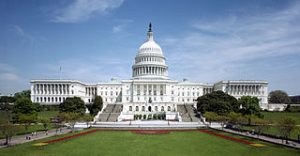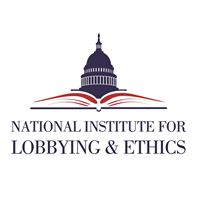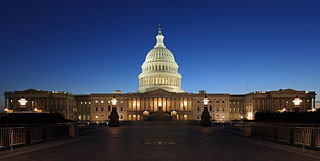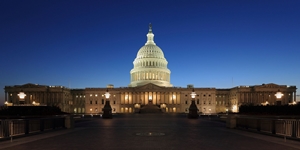October 3, 2022 •
U.S. Senate Passes Disclosing Foreign Influence in Lobbying Act
On September 29, the United States Senate passed the Disclosing Foreign Influence in Lobbying Act. The legislation, Senate Bill 4254, amends the Lobbying Disclosure Act of 1995 to require those registering as federal lobbyists include in their disclosures “the name […]
On September 29, the United States Senate passed the Disclosing Foreign Influence in Lobbying Act.
The legislation, Senate Bill 4254, amends the Lobbying Disclosure Act of 1995 to require those registering as federal lobbyists include in their disclosures “the name and address of each government of a foreign country (including any agency or subdivision of a foreign government, such as a regional or municipal unit of government) and foreign political party, other than the client, that participates in the direction, planning, supervision, or control of any lobbying activities of the registrant.”
The bill, which passed by unanimous consent, next moves to the U.S. House of Representatives.
July 30, 2018 •
Legislation Introduced to Amend Federal Lobbying Law
On July 25, Sen. Michael Bennet and Rep. John Sarbanes introduced legislation aimed to make several changes to the Lobbying Disclosure Act of 1995 (LDA). Currently, part of the LDA’s requirements for determining whether an individual is required to register […]
 On July 25, Sen. Michael Bennet and Rep. John Sarbanes introduced legislation aimed to make several changes to the Lobbying Disclosure Act of 1995 (LDA).
On July 25, Sen. Michael Bennet and Rep. John Sarbanes introduced legislation aimed to make several changes to the Lobbying Disclosure Act of 1995 (LDA).
Currently, part of the LDA’s requirements for determining whether an individual is required to register as a federal lobbyist include if he or she makes two or more lobbying contacts and if his or her lobbying activities constitute at least 20 percent of the individual’s time in services for a client over any three-month period. The proposed legislation, introduced as two identical bills in both houses of Congress as Senate Bill 3274 and House Bill 6533, would require registration if a lobbyist makes more than one lobbying contact over a two-year period and would eliminate the 20 percent time threshold used in determining whether registration is required.
This bill would also require individuals who provide paid strategic advice in support of a lobbying contact with a government official to register as lobbyists even if they do not directly make the contact, prohibit lobbyists from soliciting, bundling or providing campaign contributions above a total equal to an individual’s campaign contribution limit, and prohibit members of Congress, senators, and candidates for Congress or the Senate from soliciting campaign contributions from lobbyists when their respective bodies are in session.
Additionally, the legislation would no longer permit foreign agents from avoiding registration under the Foreign Agent Registration Act (FARA) by registering under the LDA.
More information is available from the press releases of Sen. Bennet and Rep. Sarbanes, and from a policy summary of the Democracy Reform Task Force, of which Sarbanes is the Chairman.
July 18, 2017 •
Lobbyist Group Recommends Review of US Lobbying Laws
On July 17, the National Institute for Lobbying and Ethics (NILE) called on the U.S. Congress and the U.S. Government Accountability Office to review current lobbying laws with the aim of strengthening any deficiencies in the rules. NILE is a […]
 On July 17, the National Institute for Lobbying and Ethics (NILE) called on the U.S. Congress and the U.S. Government Accountability Office to review current lobbying laws with the aim of strengthening any deficiencies in the rules. NILE is a professional organization for governmental affairs professionals working at the federal, state, and local level.
On July 17, the National Institute for Lobbying and Ethics (NILE) called on the U.S. Congress and the U.S. Government Accountability Office to review current lobbying laws with the aim of strengthening any deficiencies in the rules. NILE is a professional organization for governmental affairs professionals working at the federal, state, and local level.
“Continued news reports about the deregistering of lobbyists and ‘shadow lobbying’ to skirt past Obama and Trump Administration rules has greatly concerned the government relations profession,” NILE President Paul A. Miller stated in the organization’s press release. Miller continued, “Changes do need to be made to the current [Lobbying Disclosure Act] if we are to keep pace with how ‘lobbying’ is conducted today.”
Earlier this year, NILE issued wide-ranging recommendations for lobbying law reform on the federal level.
In June, Rep. Louise McIntosh Slaughter introduced a bill to regulate political intelligence activities. House Bill 2819, the Political Intelligence Transparency Act of 2017, defines the term ‘political intelligence activities’ to mean political intelligence contacts and efforts in support of such […]
 In June, Rep. Louise McIntosh Slaughter introduced a bill to regulate political intelligence activities.
In June, Rep. Louise McIntosh Slaughter introduced a bill to regulate political intelligence activities.
House Bill 2819, the Political Intelligence Transparency Act of 2017, defines the term ‘political intelligence activities’ to mean political intelligence contacts and efforts in support of such contacts, including preparation and planning activities, research, and other background work that is intended, at the time it is performed, for use in contacts, and coordination with such contacts and efforts of others. The bill amends the Lobbying Disclosure Act of 1995 to require the disclosure of political intelligence activities, amends title 18, United States Code, to provide for restrictions on former officers, employees, and elected officials of the executive and legislative branches regarding political intelligence contacts, and makes other related changes.
The House Committee on the Judiciary currently has the bill under consideration.
On March 17, two bills were introduced into the U.S. Congress requiring the disclosure of political intelligence activities. House Resolution 4809, The Political Intelligence Transparency Act, was introduced by Rep. Louise McIntosh Slaughter and Rep. John J. Duncan. This bill […]
 On March 17, two bills were introduced into the U.S. Congress requiring the disclosure of political intelligence activities.
On March 17, two bills were introduced into the U.S. Congress requiring the disclosure of political intelligence activities.
House Resolution 4809, The Political Intelligence Transparency Act, was introduced by Rep. Louise McIntosh Slaughter and Rep. John J. Duncan. This bill would subject individuals engaged in political intelligence to the same regulations and requirements as lobbyists, according to Slaughter’s press release. The bill amends the Lobbying Disclosure Act (LDA) by requiring registration and reporting of activities and imposes revolving door restrictions for members of Congress, executive branch officials, and their staff. An exemption exists in the bill for members of the media.
Sen. Chuck Grassley introduced Senate Bill 2738, a different bill also amending the LDA to require disclosure of political intelligence activities.
Photo of the United States Capitol by Martin Falbisoner on Wikimedia Commons.
March 9, 2012 •
Ethics.gov Arrives
The much anticipated government ethics clearing house is here as the White House promised.
 The Obama administration has unveiled Ethics.gov, the site that provides sets of data for those interested in White House visitors, data from Lobbying Disclosure Act reports, campaign finance data, travel records of elected officials, and much more.
The Obama administration has unveiled Ethics.gov, the site that provides sets of data for those interested in White House visitors, data from Lobbying Disclosure Act reports, campaign finance data, travel records of elected officials, and much more.
As part of the larger Data.gov, the new site has a great deal of muscle: “Ethics.Data.gov brings records and data from across the federal government to one central location, making it easier for citizens to hold public officials accountable.”
According to the Ethics.gov site, this is what you’ll find:
“On www.Ethics.gov, the public will be able to find millions of White House Visitor records. You will be able to see agency reports of payments from non-Federal sources for travel to meetings and conferences.
You’ll find records for entities registered with the Federal Election Commission. This includes federal political action committees and party committees, campaign committees for presidential, House and Senate candidates, as well as groups or organizations who are spending money in connection with elections for federal office.
You’ll also find records for each candidate who has either registered with the Federal Election Commission or appeared on a ballot list prepared by a state elections office. This includes contributor information for each contribution of $200 or more from an individual to a federal committee.
Finally, you’ll be able to find lobbying registrations and reports filed under the Lobbying Disclosure Act.”
For a good summary, read “White House Launches Ethics.gov” by Samuel Rubenfeld in The Wall Street Journal.
July 29, 2010 •
Lobbying Disclosure Enhancement Act Passes U.S. House
H.R. 5751, the Lobbying Disclosure Enhancement Act, passed the U.S. House of Representatives on July 28, 2010 by a voice vote.
 The measure creates the Lobbying Disclosure Act Enforcement Task Force inside the Department of Justice. The new task force will be charged with enforcing the disclosure provisions of the Lobbying Disclosure Act of 1995.
The measure creates the Lobbying Disclosure Act Enforcement Task Force inside the Department of Justice. The new task force will be charged with enforcing the disclosure provisions of the Lobbying Disclosure Act of 1995.
Further, the bill amends existing federal lobbying law by making public the names of registered lobbyists and firms who violate disclosure regulations. The bill now heads to the Senate.
Update 8-2-2010: Here is an article from The Hill giving K Street’s reaction to the Lobbying Disclosure Enhancement Act: “K Street feels it’s being unfairly targeted by bill disclosing lobbying violators“
State and Federal Communications, Inc. provides research and consulting services for government relations professionals on lobbying laws, procurement lobbying laws, political contribution laws in the United States and Canada. Learn more by visiting stateandfed.com.


